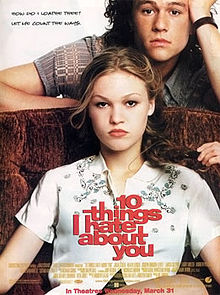Today we bring you the final installment of our series on annotation in playwriting. POW casting director Melinda Marks explains how annotation can inform the creative process. As an added bonus: a photo of Melinda and the late, great Divine.
 Julia:
Julia:
The process of annotating– has it made you think more about your own writing?
Melinda:
I think it’s made me think more about how I would direct. Because Shakespeare is so familiar. I mainly do this with Shakespeare–he’s so well-worn and comfortable, even if you know Shakespeare or if you’ve seen a lot of Shakespeare, you’re comfortable with stuff even if you don’t like it.
Even if I don’t like something, I can still think critically about, and why I don’t like it. I like seeing whether or not I can take things that I don’t like and mold them or change my thinking through critical reading and taking notes. Can I change this thing that not only is familiar, but I already have a set idea, set opinions about it? Can change my own mind so that it’s something that I like, something that I see differently?
I like to use this as a way with classical stuff to change my perspective on it.This enables me to visualize a different way; it gives me a chance to revisit the stuff and see if I still feel the same way about it. If I’m going to make a cut, or don’t like a scene, why not?
I won’t cut something just because I don’t like it, but it will make me really think of the importance of leaving things in, or the emotional cost effectiveness of keeping something in or putting it out. It’s nice to see that you can have an effect on the arc of a story by changing the shape of it. Even if you keep all the characters, and you keep all the themes, if you change the shape or you change the length, how does it change? And why does it change?
It’s cool–even I don’t know if everything I’ll ever edit will be produced, but I like to think what would other people think of it. I know that not everyone would like it. What would people think of it, and why? I get jazzed thinking about all the discussions I could have with people about why they did or didn’t like something that I changed or that I cut, because that’s the thing about stuff that’s familiar. Stories that are familiar, plays that are done a lot–they can either be boring, or you can do what you can to make them interesting to you, and start discussion. I like to shake it up.
Julia:
Do you think we could someday produce something like that?
Melinda:
Sure, if y’all want.
Julia:
I’m ignorant to this process, though. Is there a rule about producing a version of a well-known play?
Melinda:
Shakespeare’s long dead. No royalties, I don’t think. I have a version of Hamlet that’s like an hour and twenty minutes.
Julia:
Is it funny?
Melinda:
No.
Julia:
Right. Hamlet isn’t funny.
POW fans and playwrights: Have you ever adapted anything? What was that process like and how did it inform your writing? We’re always looking for blog content, so if you have thoughts on the creative process that you’d like to share, feel free to comment here or email us at playonwordssj@gmail.com.


 Melinda:
Melinda: